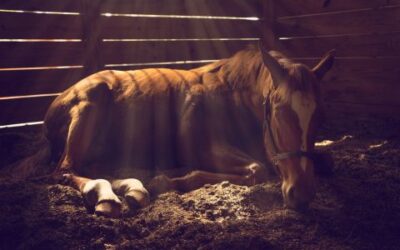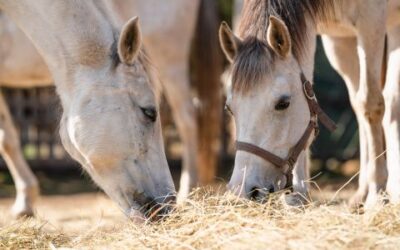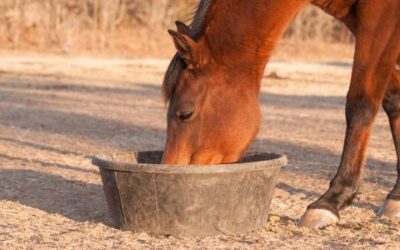Understanding Sky’s Diagnosis
Managing ileus is a serious concern for owners of post-operative horses like Sky. A leading cause of post-operative fatalities as a result of complications of colic surgery, postoperative ileus occurs in an estimated 10% – 50% of equine surgical colic cases, with fatality rates around 80%.
Ileus is a condition in which there is a failure of movement, or lack of gut motility, leading to a distention of the small intestine. Under normal circumstances, a horse’s gut digests continually, and motility of the intestine allows food to move through the horse’s system and out in the form of gas and feces. When microbes that create gases as a normal part of digestion continue to be produced, without proper motility, the buildup can lead to a backup of fluid. Fluid must be removed by a nasogastric tube, like Sky required.
 While the cause of life-threatening post-operative ileus uncertain, it may be triggered by the shock of surgery. Ileus can be caused by an imbalance in the autonomic nervous system – a disruption in the interaction between the nerves and the intestinal muscles following surgery. There are a number of conditions that can precipitate this, including loss of blood supply, abdomen trauma, and shock – including, perhaps, the body’s response to surgery.
While the cause of life-threatening post-operative ileus uncertain, it may be triggered by the shock of surgery. Ileus can be caused by an imbalance in the autonomic nervous system – a disruption in the interaction between the nerves and the intestinal muscles following surgery. There are a number of conditions that can precipitate this, including loss of blood supply, abdomen trauma, and shock – including, perhaps, the body’s response to surgery.
To diagnose ileus, a vet will look for symptoms of pain, advanced heart rate, a distended small intestine upon examination, and excessive nasogastric reflux following surgery. Upon diagnosis, there are several therapy options, and management of pain and prevention of dehydration will be priorities. Offering the horse something to eat as soon as possible during the recovery period is helpful in preventing or lessening the severity of post-operative ileus, which is why it was important for Sky to find a palatable feed following surgery.
Ileus is a complex condition, and research into its causes is ongoing. To achieve more encouraging survival rates as a result of this difficult diagnosis, more needs to be understood about its causes, prevention, and options for management.
Learn more about the causes of ileus.
Understand more about the unique digestive system of the horse.




